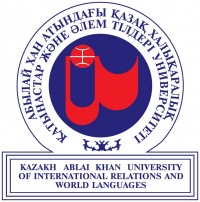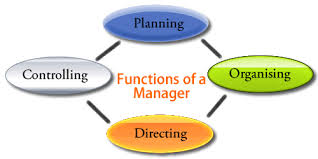Файл: Учебное пособие по профессиональному иностранному языку для студентов 3 курса.docx
ВУЗ: Не указан
Категория: Не указан
Дисциплина: Не указана
Добавлен: 02.05.2024
Просмотров: 101
Скачиваний: 0
ВНИМАНИЕ! Если данный файл нарушает Ваши авторские права, то обязательно сообщите нам.
ФАКУЛЬТЕТ МЕЖДУНАРОДНОГО ПРАВА И ЭКОНОМИКИ
КАФЕДРА ПРОФЕССИОНАЛЬНОГО ИНОСТРАННОГО ЯЗЫКА (ЭКОНОМИКО-ПРАВОВОЕ НАПРАВЛЕНИЕ)

УЧЕБНОЕ ПОСОБИЕ
по профессиональному иностранному языку
для студентов 3 курса
НАПРАВЛЕНИЕ 6В041-БИЗНЕС И УПРАВЛЕНИЕ
Автор: Мажит Б.Б.
Алматы, 2022
УДК
ВВК
Рекомендовано ученым советом КазУМОиМЯ имени Абылай хана по группе специальностей «Иностранные языки»
(протокол №)
Под общей редакцией: д.ф.н., профессора, академика
НАН ВШ Кунанбаевой С.С.
Рецензенты:
Айтбаева Г.Ж.– кандидат педагогических наук, доцент
КазУМОиМЯ им. Абылай хана
Аймагамбетова М.М.- Доктор PhD, доцент КазНУ им. Аль-Фараби
Атабаева Ф.К.– кандидат педагогических наук,
доцент Университета «Туран»
Мажит Б.Б. Professional English for management studies для студентов специальности «Менеджмент». – Алматы КазУМОиМЯ имени Абылай хана, 2021. - 143с.
Данное учебное пособие является основным учебником иноязычной специализированной подготовки студентов для неязыковых специальностей. Учебное пособие направлено на формирование профессионально-ориентированной межкультурной коммуникации в устных и письменных формах общения. Предлагаемые задания способствуют расширению словаря, углубленному пониманию и критическому осмыслению прочитанного, развитию разговорных и письменных навыков.
ПРЕДИСЛОВИЕ
Учебное пособие «Professional English for management studies» предназначено для высших учебных заведений Республики Казахстан, осуществляющих подготовку бакалавров по специальности «Менеджмент» на третьем году обучения.
Предметное содержание и коммуникативные задания разработаны из расчета часов, отводимых на изучение данного курса Типовым учебным планом специальности.
Данное учебное пособие является основным учебником иноязычной профессионально-ориентированной подготовки студентов специализированных вузов по специальности «Менеджмент». Учебное пособие нацелено на совершенствование и дальнейшее развитие навыков и умений в чтении, говорении, аудировании и письма, полученных студентами – бакалаврами в рамках общеобразовательного стандарта в первую очередь путем изменения иноязычной сферы коммуникации с общекультурной на профессиональную. Основной особенностью учебного пособия является его профессиональное содержание, на основе которого осуществляется приоритетное целенаправленное формирование профессионально-ориентированной межкультурно-коммуникативной компетенции в контексте будущей деятельности специалиста. Универсальной научно-теоретической платформой формирования межкультурно-коммуникативной компетенции являются когнитивно-лингвокультурологическая методология и теория межкультурной коммуникации (С.С. Кунанбаевой).
Цель данного учебного пособия – обучить студентов активному владению английским языком в сфере профессиональной деятельности менеджера, а также формированию у них способности и готовности к межкультурной коммуникации. Для достижения этой цели необходимо формировать у студентов общекультурные компетенции, а также совершенствовать коммуникативные компетенции (языковую, речевую, социокультурную, компенсаторную и учебно-познавательную). Когнитивный процесс и процесс общения неразрывно связаны между собой. Поэтому коммуникативные заданияу чебного пособия предусматривают постепенное накопление информации и предполагаемые пути развития и активизации навыков иноязычного общения на ее основе. Все тексты учебного пособия построены на базе оригинальных материалов зарубежных публикаций из различных популярных изданий, представленных в их электронных версиях в сети Интернет.
Основной задачей учебника «Professional English for management studies» является формирование у студентов иноязычной коммуникативной компетенции как основы профессиональной деятельности на иностранном языке, что предполагает решение следующих конкретных задач обучения: освоение обучаемыми языкового материала, в том числе расширение словарного запаса за счет деловой лексики; совершенствование навыков чтения литературы по специальности на английском языке с целью получения профессионально значимой информации; совершенствование навыков говорения и аудирования, ориентированное на коммуникацию в профессионально-деловой сфере деятельности будущих менеджеров; развитие навыков работы с профессиональной информацией на иностранном языке и способами ее переработки в различные виды документации по профилю будущей профессии (формирование навыков письма, в первую очередь формирование умений вести деловую и личную переписку). Предметное содержание организуется в когнитивно-лингвокультурологические комплексы (КЛК), компонентный состав которых включает: коммуникативную сферу, отражающую содержание этого уровня обучения, набор речевых тем и субтем общения, реализующих эту сферу и ситуации профессионального общения.
Учебное пособие состоит из 8 разделов, каждый из которых включает два подраздела, содержание которых охватывает основные аспекты деятельности менеджера в сфере профессиональной коммуникации.
Каждый раздел курса включает профессионально направленные аутентичные и адаптированные учебные тексты (для изучающего, ознакомительного, просмотрового и поискового чтения), лексико-грамматические комментарии и упражнения. Овладение всеми видами чтения литературы по специальности «Менеджмент» на английском языке с целью получения профессионально значимой информации представляется необходимым для будущих менеджеров, так как чтение как вид речевой деятельности широко востребовано при решении ряда профессиональных задач. Количество упражнений и разнообразие заданий способствует совершенствованию навыков устной и письменной форм коммуникации. При работе с языковым материалом основное внимание уделяется обогащению лексического запаса за счет изучения терминологических и сопутствующих лексических единиц общенаучного и функционального характера, наиболее часто применяемых в сфере профессиональной коммуникации. В сфере изучения грамматического аспекта предполагается повторение, углубление и систематизация изученных в рамках общеобразовательного стандарта грамматических структур в целях активизации навыков и умений структурно-семантического анализа профессионально – ориентированного текста, а также использования грамматических явлений в иноязычной профессиональной коммуникации. Последняя часть в каждом разделе учебника направлена на развитие навыков коммуникации в профессионально-ориентированных ситуациях общения, осуществляемой в устной и письменной формах.
Задания данного учебного пособия направлены на развитие умений систематизировать и анализировать информацию и прогнозировать, определять основные идеи и намерения автора, давать аргументы в защиту своего мнения, критически оценивать ситуации и находить пути решения проблемных задач. Для достижения планируемых результатов используются следующие образовательные технологии, моделирующие будущую профессиональную деятельность обучающихся: типовые ситуаций профессионального общения; публичная речь; беседы и интервью; дебаты; круглые столы; проектные работы; кейс задания; работа с электронной базы данных; написание эссе; текстов, деловых писем, докладов на иностранном языке
TABLE OF CONTENTS
| CARRIER SKILLS AND KNOWLEDGE | SKILL FOCUS | LANGUAGE FOCUS | |||||||||||||
| Professional skills | Listening | Reading | Speaking | Writing | Case Study | Grammar spot | Vocabulary | ||||||||
| UNIT 1: THE FUNCTIONS OF MANAGEMENT | |||||||||||||||
| 1. The main functions of management |
| Text A: The functions of management Text B: Development of the functional approach to management |
presentations: introducing the point, giving a plan of your talk
| Writing an essay | Discussing: how managers and leaders are different | Past tenses (active and passive voices) |
| ||||||||
| UNIT 2: MANAGEMENT AS A SYSTEM: ETHICS AND SOCIAL RESPONSIBILITIES | |||||||||||||||
1. Ethical and socially responsible management of the operations system |
| Text A: Social responsibility and ethics in organizational management Text B: Ethical and legal considerations in the recruitment process |
| Writing a covering letter | Researching the organization: how it is socially responsible | Present Tenses (active and passive voices) |
| ||||||||
| UNIT 3: MANAGEMENT STRUCTURE | | ||||||||||||||
| The importance of understanding organizational structure |
| Text A: Which organizational structure is right for your business Text B: Matrix structure suits businesses with diverse products and diverse markets |
| Writing a report | Creating an organizational chart: what organizational structure your business is | Future tenses (active and passive voices) |
Linking words/phrases conveying contrast | ||||||||
| UNIT 4: EMPLOYMENT CULTURE AND CULTURAL DIVERSITY | |||||||||||||||
| The importance of cultural diversity in the workplace |
| Text A: How to create a positive workplace culture Text B: The importance of cross-cultural management | Expressing opinions | Writing a formal email | Discussing strategies that may help improve cultural intelligence | Direct and Indirect speech |
| ||||||||
UNIT 5: THE IMPORTANCE OF COMMUNICATION IN BUSINESS MANAGEMENT | |||||||||||||||
| The importance of improving communication skills of managers at work |
| Text A: The importance of communication in business management Text B: Information technology and its uses in business | ● Introducing information
| Writing a summary | Organizing a decision-making meeting | Relative clause |
| ||||||||
| UNIT 6: INTERNATIONAL BUSINESS MANAGEMENT | |||||||||||||||
| The importance of developing knowledge and skills in international management |
| Text A: International business in changing global environment Text B: International manager: job description, duties, and requirements | Making presentations: explanation goals, summary and conclusion | Describing charts, graphs and tables | Prepare a strategic plan and discuss questions about regional business development Prepare a presentation on your strategic plan | Conditional clause Compound sentences |
| ||||||||
| Unit 7: LOGISTICS AND SUPPLY CHAIN MANAGEMENT | |||||||||||||||
| The importance of developing knowledge and skills in understanding the difference between logistics and supply chain management |
| Text A: Logistics Text B: Supply chain management | Presenting arguments | Writing a business memorandum | Creating a supply chain strategy | Gerunds and infinitives |
| ||||||||
| Unit 8: INVESTMENT MANAGEMENT AND FINANCIAL INNOVATIONS | |||||||||||||||
| The importance of developing knowledge and skills in understanding the meaning of investing and financing activities |
| Text A: Investment management Text B: Financial management | Giving advice and asking for advice | Writing a business letter (a letter giving suggestions for investment) | Creating finance management strategies | Modal verbs |
| ||||||||
UNIT 1
THE FUNCTIONS OF MANAGEMENT
LEAD-IN
А. Discuss the following questions.
1. What is management?
2. Is it an art or a science?
3. What makes a good manager?

B. Think about other qualities of a manager that should be added to this list?
a) a manager should be a leader
b) to manage time and money effectively
c) to be able to communicate with people
d) to know how to motivate employees
e) to be highly educated
READING
Task 1. Answer these questions before you read the text.
-
Where do you see yourself within the given functions bellow? -
What areas are you strong?
 Text A
Text ATask 2. Read the text below and then discuss the following questions.
1. What is the function of management?
2. Why are functions of management important?
3. What is the most important function of management and why?
THE FUNCTIONS OF MANAGEMENT
The functions of management uniquely describe managers' jobs. The most commonly cited functions of management are planning, organizing, leading, and controlling, although some identify additional functions. The functions of management define the process of management as distinct from accounting, finance, marketing, and other business functions.
Planning is the function of management that involves setting objectives and determining a course of action for achieving these objectives. Planning requires that managers be aware of environmental conditions facing their organization and forecast future conditions. It also requires that managers be good decision-makers. There are many different types of plans and planning: strategic planning, tactical planning and operational planning.
Organizing is the function of management that involves developing an organizational structure and allocating human resources to ensure the accomplishment of objectives. The structure of the organization is the framework within which effort is coordinated. The structure is usually represented by an organization chart, which provides a graphic representation of the chain of command within an organization. Decisions made about the structure of an organization are generally referred to as "organizational design" decisions.
Leading involves influencing others toward the attainment of organizational objectives. Effective leading requires the manager to motivate subordinates, communicate effectively, and effectively use power. If managers are effective leaders, their subordinates will be enthusiastic about exerting effort toward the attainment of organizational objectives.
Controlling involves ensuring that performance does not deviate from standards. Controlling consists of three steps, which include establishing performance standards, comparing actual performance against standards, and taking corrective action when necessary. Performance standards are often stated in monetary terms such as revenue, costs, or profits, but may also be stated in other terms, such as units produced, number of defective products, or levels of customer service.
(Adapted from https://www.referenceforbusiness.com)
Task 3. Choose the most appropriate letter (a, b, c, or d) to answer questions (1-5).
1. According to the text, which of these is not mentioned as the requirements of planning?
a) to forecast future events of organizations.
b) to be aware of environmental conditions facing the organization.
c) to promote public health.
d) to be good decision-makers.
2. Which of these is not mentioned as the functions of organizing?
a) to allocate human resources to ensure the accomplishment of objectives.
b) to develop an organizational structure.
c) to provide a graphic representation within an organization.
d) to predict possible trends or occurrences.
3. Which of these is not mentioned as the requirements of effective leading?
a) to communicate effectively.
b) to punish employees.
c) to motivate subordinates.
d) to use power effectively.
4. Which of these is not mentioned as the steps of controlling?
a) to establish performance standards.
b) to take corrective action.
c) to sale a report.
d) to compare actual performance against standards.
5. Which of these is not mentioned in the text? Performance standards are often stated in monetary terms such as……………………………………………..
a) costs
b) profits
c) revenue
d) accounting
Task 4. Match the sentence beginnings (1-6) with the correct endings (a-f) to make a short summary of the Text A. Read the Text A again if necessary.
1. The functions of management define the process of management as distinct from accounting, finance, marketing, and ……………………………………….
2. Planning is the function of management that involves setting objectives and determining a course of action for ………………………………………….
3. Organizing is the function of management that involves developing an organizational structure and allocating human resources ………………………..
4. Leading involves influencing others toward …………………………………
5. Controlling involves ensuring that performance…………………………………
6. Performance standards are often stated in monetary terms such as revenue, costs, or profits, but may also be stated in other terms, such as units produced, number of defective products, or ……………………………………….
a) levels of customer service.
b)to ensure the accomplishment of objectives.
c) does not deviate from standards.
d) the attainment of organizational objectives.
e) other business functions.
f) achieving these objectives.
Task 5. Match the functions of management (1-4) with the activities (a-d).
| FUNCTION OF MANAGEMENT | ACTIVITIES |
| a) Specifying job responsibilities; grouping jobs into work units; resource allocation. |
| b) Directing the workforce; motivating your subordinates; communicating with employees; leadership. |
| c) Setting performance standards that indicate progress toward long-term goals. |
| d) Analyzing the current situation; anticipating the future; determining the organizational objective; deciding the activities to be involved; choosing strategies. |
VOCABULARY
Task 1. Match the words in Column A with the correct definitions in Column B.
| A | B |
|
|
| b) a set of principles, ideas etc. that you use when you are forming your decisions and judgments. |
| с) someone who has less power or authority than someone else. |
| d) the process of achieving an aim or particular level of success. |
| e) the work of accountants or the methods they use. |
| f) in a way that is different from any similar thing or person. |
| g) include something as necessary part. |
